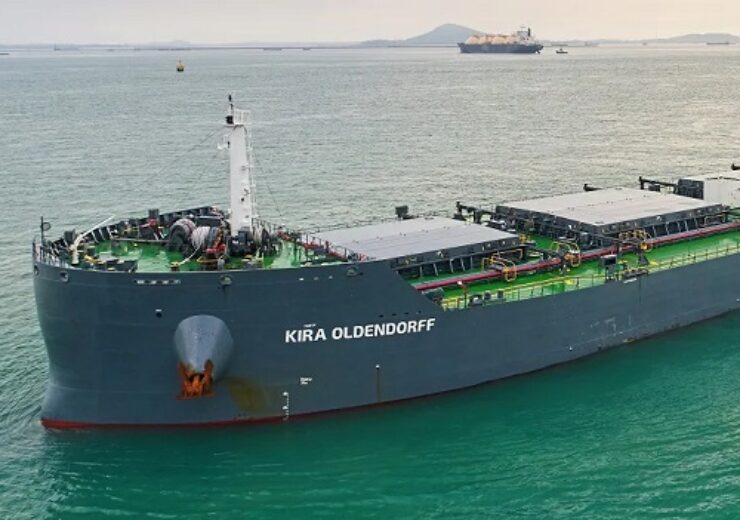The consortium will evaluate the green ammonia supply, bunkering and first mover support mechanisms to take part in a green corridor for iron ore between Australia and East Asia

Australia-East Asia iron ore Green Corridor. (Credit: BHP)
A consortium led by Global Maritime Forum has signed a letter of intent (LOI) to develop an iron ore Green Corridor between Australia and East Asia.
The consortium comprises dry bulk charterers BHP, Rio Tinto, and shipping companies Oldendorff Carriers and Star Bulk Carriers.
Green Corridors are specific shipping routes that support the economics, infrastructure, and logistics of zero-or near-zero-emission shipping through targeted policy and industry action.
Governments and industry leaders are looking to establish Green Corridors, to address demand for green shipping and scale greenhouse gas emission shipping.
Global Maritime Forum CEO Johannah Christensen said: “Zero-greenhouse gas emission pathways require the creation of a parallel value chain that involves new ways of working, new contractual relationships, and drives the development of decarbonized fuel production and infrastructure.
“This new iron ore green corridor collaboration is an important step towards enabling zero greenhouse gas emission shipping from both the supply and demand side.”
According to the Getting to Zero Coalition report, dubbed The Next Wave, showed how green corridors are designed with a pre-feasibility study for an iron ore route between Australia and East Asia.
The study suggested that green ammonia can be the fuel of choice for this corridor, based on favourable production conditions, and enabling regulatory environment.
The consortium members intend to jointly evaluate the green ammonia supply, bunkering and first mover support mechanisms to take part in the Australia-East Asia iron ore green corridor.
Based on the consortium work and inputs from the supply chain, the partners will develop a framework for the real-world implementation of a shipping value chain for iron ore.
The new consortium is expected to enable a public-private dialogue that will assess the conditions required for zero or near-zero-GHG emission shipping on the corridor.
BHP maritime and supply chain excellence vice president Rashpal Bhatti said: “BHP’s membership of this Green Corridor consortium is testament to the importance we place on targeted exploration and partnerships in identifying pathways to decarbonization for the maritime sector.”
Rio Tinto commercial operations head Laure Baratgin said: “This collaboration is another important step towards accelerating the delivery of our climate commitments on shipping, as part of Rio Tinto’s broader goal of net zero emissions by 2050 and a 50% reduction by 2030”
